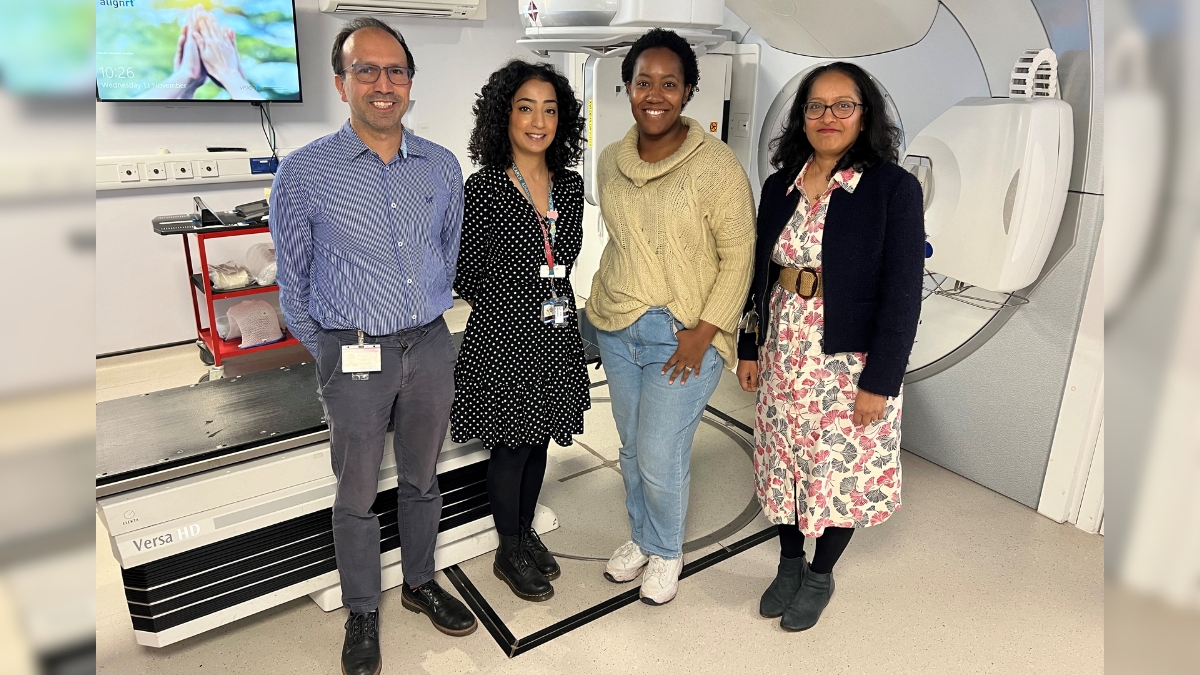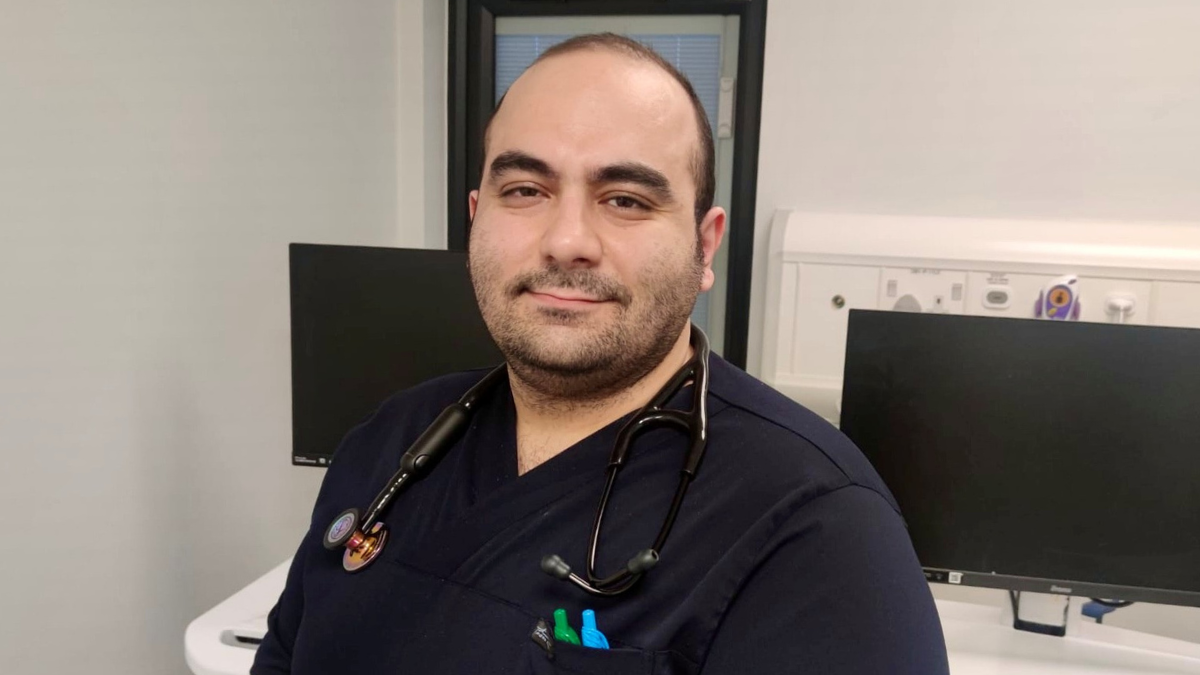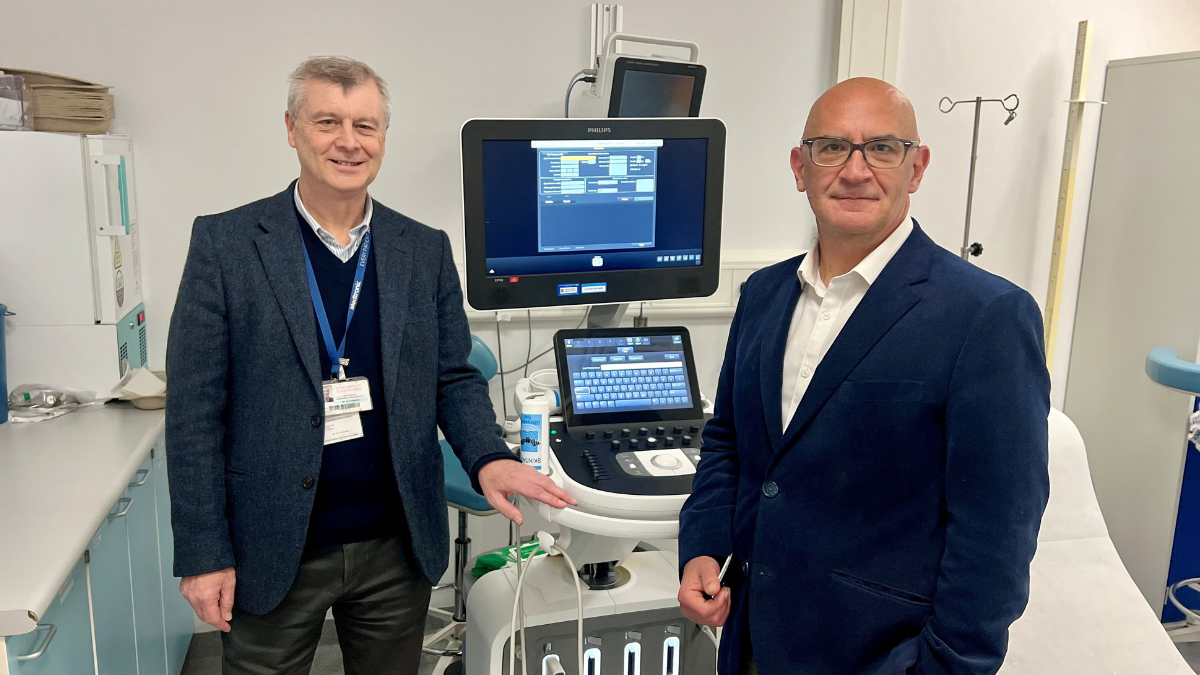New innovative approach aims to reduce treatment duration for radiotherapy patients
Published on 21/01/2025

A new study aimed at improving the current breath-holding technique during radiotherapy, known as Deep Inspiration Breath Hold (DIBH), is currently underway at Queen Elizabeth Hospital Birmingham (QEHB).
DIBH is a technique that is used during radiotherapy to treat cancer in the breast and chest area.
DIBH involves patients taking a deep breath and holding it, which expands the lungs and increases the distance between the heart and the radiation target. This helps to minimise the risk of heart and lung damage during radiotherapy.
This breath-hold technique also keeps the chest still, making it easier to focus the radiotherapy on the precise area requiring treatment.
The study is trialling a new innovative approach, that aims to increase the length of time patients can hold their breath, which currently stands at around 25 seconds.
In this new approach, patients receive 60% oxygen via a mask during radiotherapy, fully saturating the lungs and providing a greater oxygen reserve to support a longer breath hold.
This reduces the number of breath holds and breaks required, resulting in shorter radiotherapy sessions and more efficient treatment.
QEHB is the first centre in the UK to implement this technique clinically and has so far recruited four patients to the study, all undergoing radiotherapy for breast cancer or lymphoma.
All four have doubled their breath-hold time to around 45 seconds, with one patient achieving an impressive 2 minutes and 24 seconds.
Feedback so far suggests that this new approach significantly enhances the patient experience, by reducing the time spent in the treatment room and making the radiotherapy process more comfortable.
34-year-old Chantel Chantiluke, from Walsall, was the patient who reached the two-minute mark. Chantel said: “After being diagnosed with inflammatory breast cancer, I began radiotherapy at QEHB in July and used this new technique throughout all 15 sessions.
"You’re holding your breath for a while but it’s not uncomfortable or difficult. It just felt normal - as normal as holding your breath for over two minutes could be! My appointment should have been 50 minutes, but I was finished after 19 minutes.
“I just hope this technique gets rolled out quickly, so others can benefit from shorter appointment times like I did, and so that the team can see and treat more people.”
Sofia Parveen, Senior Clinical Dosimetrist at QEHB and Radiotherapy Lead for the study, said: “This innovative approach enhances the efficiency of care, allowing us to treat more patients each day, while also improving the overall patient experience by making the process quicker, more comfortable, and less stressful.
“It's a cost-effective innovation, with just a £1.50 equipment fee and very little difference in setup compared to just using deep inspiration breath hold alone.
“Getting the study up and running has been a true team effort, with support from many Trust departments, including Professor Clutton-Brock, a long-time advocate of our innovative breath-hold studies in Radiotherapy.”
In the future, the team hopes to extend this approach to all patients who could benefit, particularly those undergoing longer or more complex treatments.


